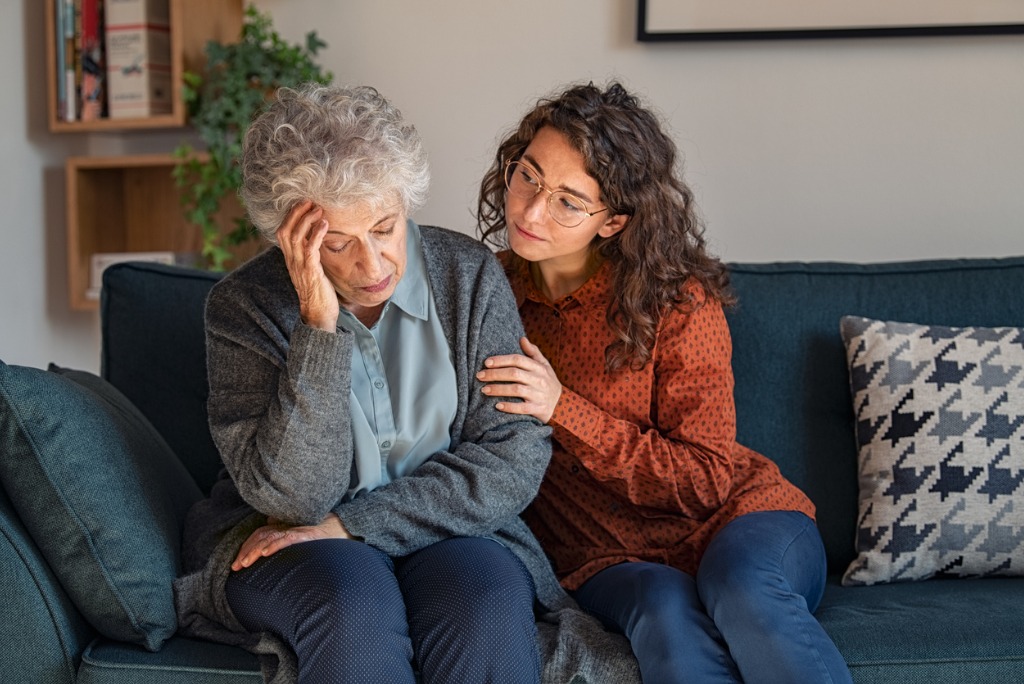When a loved one is diagnosed with Alzheimer’s disease, it can be challenging to know what to do or how to cope. You may first want to understand this degenerative disease so that you can best support your loved one after their Alzheimer’s diagnosis.
What is Alzheimer’s Disease?
Alzheimer’s disease is a progressive brain disorder that causes a gradual decline of a person’s mental functions, resulting in memory loss and an inability to think clearly. Alzheimer’s disease is the most common type of dementia and accounts for about 50 to 70% of all cases.
Early symptoms include difficulty remembering recent events or conversations, forgetting important personal information, and becoming confused about time and place. As the disease progresses, people with Alzheimer’s may have trouble speaking, reading, and writing. They may also become restless and agitated, or experience mood swings and paranoia. In the final stages of the disease, individuals lose the ability to care for themselves and may become completely dependent on others for their daily needs.
Processing an Alzheimer’s Diagnosis
Discovering that a loved one has been diagnosed with this degenerative condition can lead to a range of new and uncomfortable feelings. You may:
- Feel isolated or alone
- Struggle sleeping or sleep too much
- Gain or lose weight
- Lose interest in activities you once enjoyed
- Abuse alcohol or drugs
- Feel overwhelmed and uncertain about the future
- Feel frequently worried
- Experience intense headaches
These symptoms are perfectly natural following an Alzheimer’s diagnosis of a loved one. Fortunately, there are several coping strategies to help you stay strong during these difficult times.
Coping Strategies
Join a Support Group
One of the best ways to manage these overwhelming feelings is to join a support group. Support groups offer you a safe place to share experiences with others who understand what you are going through. This process can provide comfort, and it may also allow you to learn about how others in your situations cope. Feeling connected to a community of people who understand your plight is also very effective at reducing feelings of isolation and loneliness.
Prioritize Your Health
Staying active and eating healthy are both excellent ways to reduce daily stress and improve your overall wellness. Don’t forget to also enjoy your own personal hobbies and interests to support your mental health.
Use Relaxation Techniques
Relaxation techniques are able to ground you back to the present if you are experiencing overwhelming feelings of stress or uncertainty about the future. Try the following methods:
- Progressive muscle relaxation
- Yoga
- Meditation
- Breathing exercises
Learn More About Alzheimer’s Disease
Educating yourself on the stages of the disease that your loved one will go through may make it more manageable to cope with their diagnosis, as you will know what to expect regarding their possible behavior and personality changes.
Seek Professional Help
Despite trying the above coping strategies, your mental health may still take a significant toll. If these methods are ineffective and you still feel as though you are drowning in feelings of anxiety, stress, and hopelessness, then it may be time to seek professional help. Speaking with a licensed therapist can help you manage these overwhelming feelings and help you improve your overall quality of life.
Contact Olympian Clinical Research
At Olympian Clinical Research, we understand how difficult it can be to cope with a loved one’s Alzheimer’s diagnosis. In an attempt to understand how this degenerative condition forms, we are conducting a clinical trial for individuals who are at risk for developing Alzheimer’s disease. Click here to find the study and see if you or a loved one qualifies to participate in our clinical trial.

Recent Comments